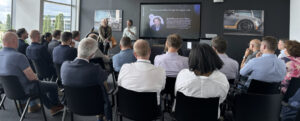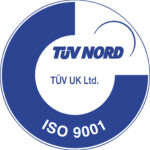While COP26 has dominated media headlines in recent weeks – as all eyes descend on Glasgow for the United Nations’ much-debated event – the widespread need for all businesses to up their decarbonisationation efforts, is only going to grow.
The UK’s net zero target means that, by 2050, a balance must be achieved so that any greenhouse gas emissions are offset by the amount removed from the atmosphere – thus cancelling each other out. This admittedly bold goal will not be easy, but with climate change pressures mounting, conversation is getting louder and the subject is – quite rightly – not going away.
There is a general consensus that this is no longer only the ‘problem’ of organisations and pioneers in the environmental sector. And while the Government can and will legislate on ‘green’ matters in a bid to drive change, regulations alone won’t achieve net zero. A concerted effort is required among businesses large and small – and the general public too.
There are two distinct routes on the path to achieving the net zero target, and in truth a combination of both are key to progress. One is to actively remove the gases that have already been created, and the other is to reduce the amount of greenhouse gases produced in the first place – a prevention rather than cure option.
In the supply chain industry, advancements therefore include a switch to more ecologically friendly electric fleet, savvy delivery options for a geographically fragmented workforce, and the reduction of ‘waste’ at source.
At OT Group’s new distribution centre in Ashton-under-Lyne, for example, our modern facility includes A-frame and pick by light systems that reap greater efficiencies, and clever box-cutting for smarter packing and waste reduction.
And the innovation doesn’t stop there. The introduction of further sustainability measures is core to OT Group’s business strategy, so ongoing investment in green developments, will continue.
But the world of procurement is a vast and varied one, and with broader environmental thinking and wider stakeholder efforts, the road to net zero will feel less like a pipedream and more like a deliverable that can and will be accomplished.
Collaboration will undoubtedly lie at the heart of this. At OT Group, we’ve spoken to organisations who were struggling to keep remote workers ‘stocked’ with the business supplies they needed to remain productive, for example. So, we worked with industry to roll out our homeworker subscription service, so that they receive what they need, when they need it, without any quality or spend leakage, and – importantly – unnecessary deliveries.
We have seen a surge in the number of businesses – large and small – relying on their business intelligence more than ever, too. Such data analysis isn’t just great for tail spend management but can help to identify trends that may otherwise remain untapped. And often these don’t just cost the company money, they ‘cost’ the environment too.
But it’s not just businesses – our customers – who can make a difference. If products – and services – can be designed with the environment in mind, this is one of the best ways to prevent the unnecessary creation of waste. That’s the reason for our SmartChoice range for example – packed with items specifically selected for their strong CSR credentials.
And this in itself isn’t always easy. Conversation with another business – in the recycling sector, funnily enough – recently revealed how hard they’re finding it to source environmentally-efficient fleet specific to their needs, because the technology doesn’t exist yet on a commercially-viable scale. It seems that even when the appetite is there to be greener, the odds are still stacked against some firms.
The more innovations that come to market – from the products themselves, through to the materials they’re packed in, and the technologies that help us reduce our own emissions – the more we can proactively invest in them.
An important thing to note from the COP26 hype, is that people are talking about the environment more than ever before. When bidding for large procurement tenders, it’s a significant topic of conversation, and we are increasingly speaking to smaller businesses about it too. The procurement industry won’t achieve net zero overnight, but it’s a very exciting time to be a part of the supply chain…





